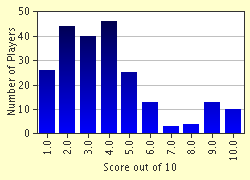Quiz Answer Key and Fun Facts
1. In his "Moral Essays," Alexander Pope says that
"London's column, pointing at the skies,
Like a tall bully, lifts the head and lies."
Which column is he referring to?
2. Which poet described London in these terms:
"A mighty mass of brick, and smoke, and shipping,
Dirty and dusty, but as wide as eye
Could reach, with here and there a sail just skipping
In sight, then lost amidst the forestry
Of masts; a wilderness of steeples peeping
On tiptoe through their sea-coal canopy;
A huge, dun cupola, like a foolscap crown
On a fool's head--and there is London Town."
3. Which author first described London as "a modern Babylon"?
4. Which of Charles Dickens's characters had a knowledge of London that was "extensive and peculiar"?
5. "This is a London particular," says William Guppy to Esther Summerson in Dickens's "Bleak House." What is he referring to?
6. Which literary character described London as "that great cesspool into which all the loungers and idlers of the Empire are irresistibly drained."
7. In a famous song of the early twentieth century, an Irishman working in London says "Goodbye, Piccadilly: farewell, Leicester Square." Where is he planning to return to?
8. A crowd flowed over London Bridge, so many,
I had not thought death had undone so many.
Sighs, short and infrequent, were exhaled,
And each man fixed his eyes before his feet.
Which twentieth-century poet wrote these lines?
9. Which musical duo celebrated the joys of crewing a "big six-wheeler scarlet-painted London Transport diesel-engined 97-horsepower omnibus"?
10. According to Bette Midler, "When it's three o'clock in New York, it's still ____ in London."?
Source: Author
TabbyTom
This quiz was reviewed by FunTrivia editor
bloomsby before going online.
Any errors found in FunTrivia content are routinely corrected through our feedback system.

